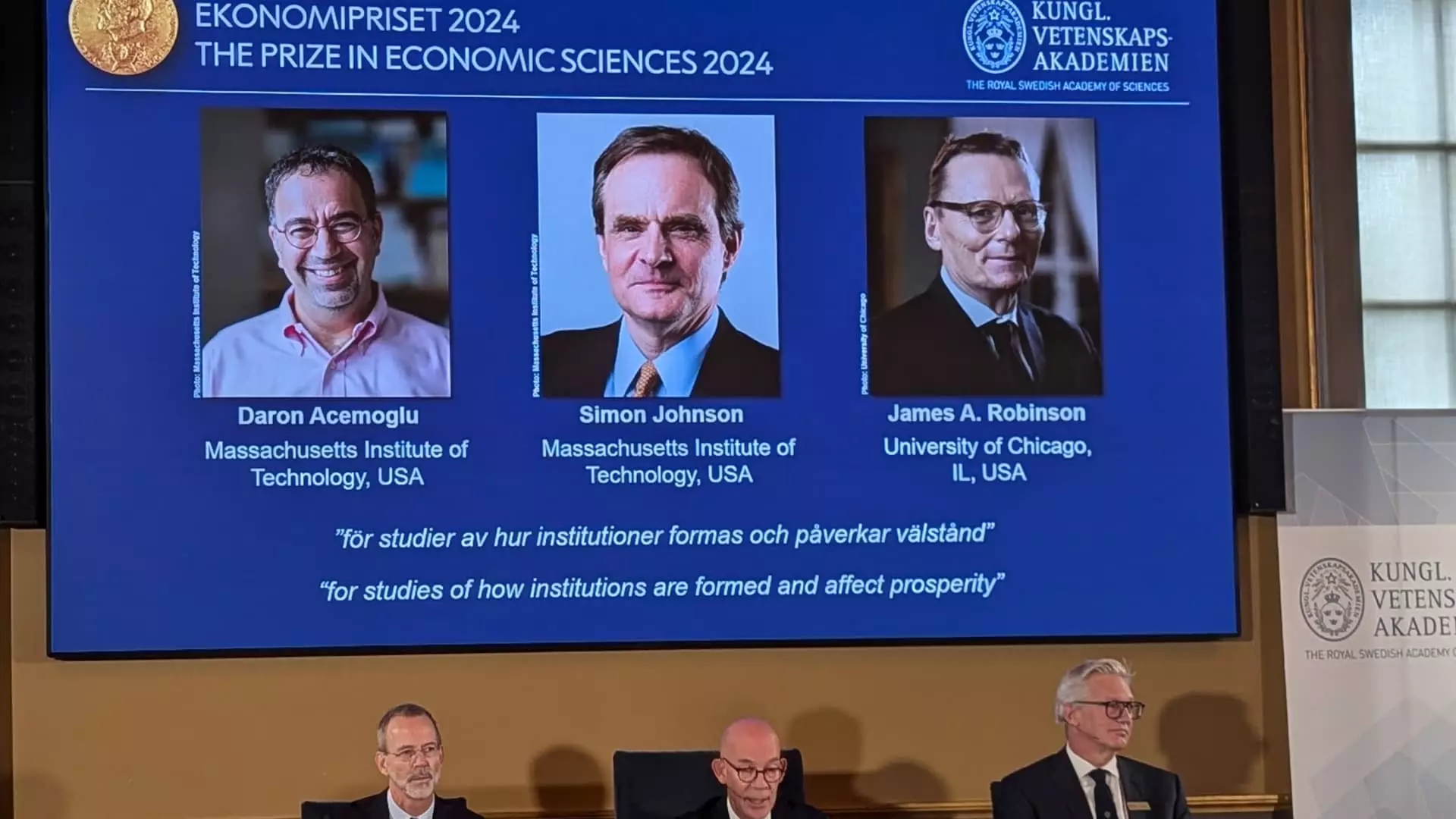On a momentous Monday, the Nobel Prize in Economic Sciences was awarded to three distinguished American economists: Daron Acemoglu, Simon Johnson, and James Robinson. The Nobel committee recognized their profound contributions to understanding the persistent wealth inequality between nations, particularly emphasizing the pivotal role that societal institutions play in a country’s economic prosperity. This prestigious award serves not only as an acknowledgment of their research but also as a spotlight on the critical factors that determine the economic trajectories of nations.
The laureates’ work sheds light on a fundamental truth: nations that suffer from weak rule of law and exploitative institutions often remain trapped in a cycle of stagnation. This analysis reveals that poor governance and institutional decay are significant barriers to economic growth. According to the Nobel committee, Acemoglu, Johnson, and Robinson have illuminated why these particular societal structures result in failure to stimulate economic advancements. Their empirical studies illustrate that without effective institutions, countries struggle to harness their resources and potential, thereby sustaining poverty rather than fostering development.
Beyond mere analysis, the economists’ work emphasizes that the disparities we observe today are not merely outcomes of historical circumstances but also a reflection of institutional decay over centuries. The data indicates that the richest countries are approximately 30 times wealthier than the poorest countries; this staggering gap serves as an urgent call for dialogue and action within the social sciences.
The trio’s insights are not limited to contemporary analysis; they extend into the colonial past, providing a historical framework that explains current inequalities. Acemoglu and Robinson, in their influential book “Why Nations Fail,” argue that the very political and economic systems imposed by colonizers in the 16th century have lasting impacts on countries today. Remarkably, regions that were wealthier at the time of colonization often bear the harsh consequences of extraction and exploitation, which have left them impoverished in the modern era. This highlights how historical injustices continue to shape economic outcomes, impacting the fabric of societies long after formal colonial rule has ended.
The economists’ arguments bolster the idea that understanding the roots of global inequality must include a historical lens. Decolonization, while a significant political shift, did not automatically rectify the institutional deficits that had been established during colonial governance, leading to continuing struggles for economic viability.
The Nobel committee’s endorsement of Acemoglu, Johnson, and Robinson’s work reflects an appreciation for both empirical and theoretical advancements in the field of economics. Jakob Svensson, director of the Institute for International Economic Studies, noted their pioneering approaches, which offer new dimensions in analyzing global inequality. Their methodologies challenge conventional economic theories and replace them with more nuanced understandings of how institutions can facilitate or hinder economic progress.
Moreover, the urgency of addressing these gaps cannot be overstated. Economic disparity remains one of the most pressing social issues, influencing global stability, migration, and conflict. By engaging deeply with the underpinnings of wealth inequality, their research serves as a vital resource for economists, policymakers, and sociologists alike.
The award comes at a critical juncture when many nations grapple with the consequences of economic inequality. The scholars’ findings urge policymakers to recognize the importance of strengthening institutions as a pathway to achieving equitable growth. Instead of attempting to engineer wealth redistribution through mere financial means, the focus should shift to creating robust, inclusive institutions that can support sustainable development across all segments of society.
Acemoglu, Johnson, and Robinson’s work ultimately teaches that the path toward economic equity follows through institutional reform and governance enhancement. Their ideas will likely inspire ongoing debates and discussions about the policies needed to create effective, sustainable changes in both developing and developed nations.
Their Nobel Prize is not only a testament to their impactful work but also a call to action for a deeper exploration into the roots of inequality and the craft of resilient institutions. The focus remains clear: society’s future prosperity hinges on understanding and reinforcing the bedrock of its economic foundations.


Leave a Reply